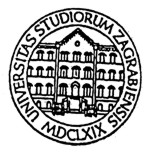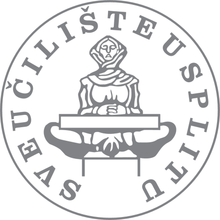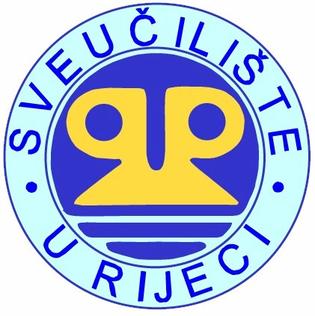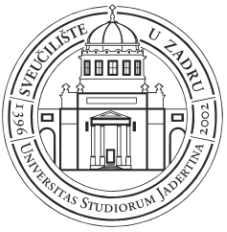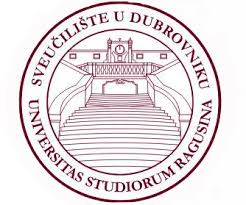Josip Novakovich (josipn@yahoo.com)
Kod Slasticara (Chez Gelato Man)
Daruvar, Croatia (Yugoslavia), 1963
What were you doing when JFK was assassinated is not a fair question for us who could remember that day and even more, the day before, because if we can remember it, we are too old. Just being able to answer that question, even if hazily and partly speculatively, demonstrates that I am an old fart. It’s bad enough to remember what you were doing when John Lennon was assassinated, because it means you aren’t in the bloom of your youth. And somehow JFK to me symbolized youth and the youthful American image. JFK was a quintessentially young president, with a wonderful hairstyle, in which you could see the picks of his haircomb, a millimeter apart, creating the wave. He was, like Marilyn Monroe, an image of America blaring at us from posters and TV in Yugoslavia. I was 7 and a half years old when he was killed but old enough even before his death to see that the Baptist Minister in our church combed his hair and parted it JFK style. JFK should be credited not only for bringing stability to us in Yugoslavia, caught between the two blocks, but also for developing barber shops. Hitherto, men wanted to have mustaches like Stalin, but now, slick hair and cleanly shaven and aue d’cologned cheeks.
My older brother already started to imitate the left to right parting of the waves. I was vigorously cowlicked, my hair stood up like weed on my right side, and combing was useless, and I pretty much gave it up, except for the year of lice, but that’s another story. Plus, I had other problems, other than looks, such as how to win fights, collect stamps and matchboxes, and avoid being sent to the corner of the classroom for misbehaving. Whoever talked during the class, or threw stones, or fell asleep, or spat, would have to kneel in the corner on corns, which my teacher kept in her bag and put in the corner. It’s some kind of anti-rosary. Try it, if you are intrigued. I ended up kneeling there way too often.
Yugoslavia was not part of the Soviet Block. It was independent, non-aligned, despite being communist. China at that time adored Yugoslavia and showed mostly Yugoslav black and white movies, black and white in two senses, Partisans against Germans, Light against Dark. Tito, who too, was proud of his hairstyle, mostly combed upward, presided over all the shops in his semi-profile, handsomely tilted, in white, as scary as God. We wrote letters to him for his birthday. But we knew he was no JFK. JFK showed his teeth, which were white and gleaming. Tito had a gold tooth and preferred to be tight lipped. And Tito benefitted from America having a great nuclear arsenal, better than USSR’s, so he could be independent, and balance east and west for it. We did not look at pictures of Khruschev, who looked like drunken peasants a few kilometers away from our small town.
I learned of the assassination at the corner of Mose Pijade, my street, and Square of Marshal Tito, in a sweet’s shop run by an Albanian, whom we called Shiptar. Kod Shiptara, chez Albanian, was the nickname of the store, which featured gelato in all the fruit, chocolate, and vanilla glory, and whipped egg cakes, shampita (egg white) and krempita (yolk) varities. It was on a Saturday, the day after the assassination that I learned about it. At home we had no TV as my father got his news usually from the radio and the Bible, and on Friday it was the Bible. So I didn’t learn about it on the day of assassination itself, that Friday the 23rd of November. There’s nothing new under the sun was his motto. I managed to steal enough coins nearly every day for visits to the sweet’s shop. My parents made and sold clogs and kept a lot of change around to be able to return the money for customers, and it was loose, so that they would not notice if something was missing. And since I worked to help them in the shop, usually 4-5 hours a week, they also paid me a little but I thought my wages were not sufficiently high and just, so I supplemented them. We went to school 6 days a week, and on that Saturday at noon, I walked to school, an old cloister, with a storks nest on the chimney, and on the way walked into the sweets shop. There were black flags on the lampposts, and someone asked in the shop, Who died? Don’t you know? President Kennedy, the Gellato man said. They killed him in Dallas. Really? The man who wanted to buy sweets was stunned and he walked out without buying anything. I too was but still I got my egg nog pies, and licked them contemplatively, while a friend of mine joined me. So Krhuschev got the better of him, someone said. Who will stop the Russians now?
Oh, we have nothing to fear, Tito will. Ever since Tito’s break with Stalin in 1948, there were fears that Soviets would invade us, and we were on the northern border with Hungary. Tito looked even more unshaken than ever on the portraits all over the town. Anyway, the day later, the minister talked about how this meant that the end was near if the American president was shot, and he wept for the president, and his hair was extra shiny that day.
And the day before, I must reconstruct. I am pretty sure this is what happened the day before, or the day before the day before, also chez gelato man. (I must say my memory must be faulty as it was too late in the year to have ice-cream). My tall neighbor, Sakic, bought a raspberry gelato ice cream on a cone, even though it was a cool day, and gelato was mostly out of season. Maybe the ice-cream was old and spoiled, but at any rate, Sakic licked it and didn’t like it, and said so and wanted his money back, but the gelato man said, You’ve already licked half of it. You can’t give me the ice cream back, and so I can’t give you your money back.
Oh yes, I can give you the ice cream back, said Sakic, and he flung the cone at the gelato man. The cone landed straight on gelato man’s nose and stayed there for a few seconds, and the raspberry dripped over his mustache. The man was too surprised to react right away, and I was overjoyed as so little was happening in our town, and it was a boring town, that this seemed to be an event, a ridiculous one, and so I laughed. The gelato man looked like a snowman with an added nose. Don’t ever come back again, he shouted to Sakic. You are right, I won’t come back again for your rotten eggs. Go to hell. I was happy all day on account of something ridiculous to tell my friends and to cherish the image. And yes, I must admit, I was so starved for events, that the assassination with the black flags and the radio newsreels and weepy ministers, that all seemed cool, wonderful, and important, lifting us out of the drabness of our provincial town, which was famous for spring spas for old rheumatic people, and for old roman baths, fed by these hot springs for two thousand years. Yes, we had the old, but it was great to get the new and the news of the new. I think a few years later I was even disappointed when the Soviets stopped at the border and didn’t come to visit us and invade us, like they did with the Czechs.
I was born in the year of fear, 1956, in Yugoslavia, just before the Soviet tanks rolled all over Hungary and up to the Yugoslav border. It may not have been only the suppression of the Hungarian revolution but also the bringing back of Yugoslavia into the Soviet block that the Soviet Union planned but, perhaps thanks to the United States, the Soviets stopped short of running us over. Not that I would have noticed much as a shrieking infant, although, it was likely, that I would have lost my father earlier that way.
The sweet’s shop remained important to me after JFK’s assassination all the way till Robert Kennedy’s assassination, in 1968, when I was 12. That was the year Coca-Cola was imported to Yugoslavia. Now why don’t we want to think about the day RK was assassinated? Anyway, after Coca-Cola began to be imported, I lost taste for egg cakes, and became a Cola addict, ashamed to say, but I still used the sweet’s shop as a setting for my story, Yahbo the Hawk, because I picked up a little hawk near the shop for a small sum of money, which the Hungarian boy, Kocis, used to buy egg cream cakes.
And anyhow, nobody seemed to want to imitate Lyndon Johnson, and even less, Richard Nixon. We did want to imitate Jimi Hendrix and Jim Morrison, and yes, I could write about what I was doing when I learned of their deaths. Death of course freezes those who die, but for a moment, it freezes us in time, turning us into the favorite cliché in fiction, Lot’s Wife, for a few minutes, and we remember those frozen minutes years later in clear detail and even taste. John Lennon (what’s up with these Johns) tastes to me like a hard baguette, with my tooth in it. I cracked my tooth as I bit into the bread too hard when I learned of his death. In comparison, JFK’s death was much sweeter, with the taste of foamed up egg yolk and egg white, with sugar. |
